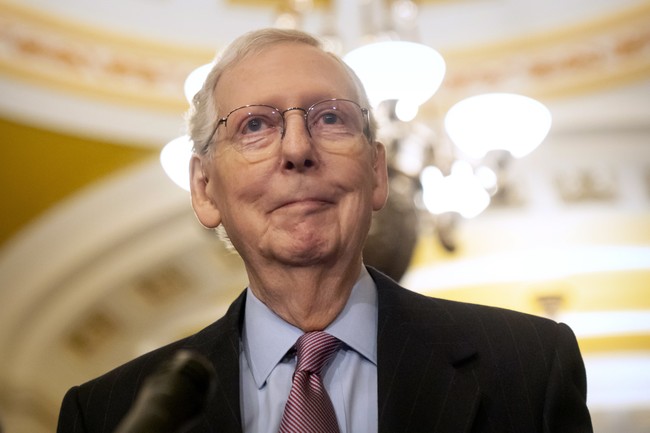EU's New Agricultural Policy: A Global Trade Game Changer?
The EU's revised agricultural policy seeks to address farmers' concerns, emphasizing sustainability and competitiveness amidst looming trade tensions with major international partners.
Published February 20, 2025 - 00:02am

Image recovered from arabnews.com
The European Union is on the brink of a pivotal shift in its agricultural policy, promising significant changes aimed at bolstering the sector that remains integral to its economy and societal infrastructure. As part of the 'Vision for Agriculture and Food,' the EU plans to enforce stricter food import regulations. This move is targeted at products that fail to meet the EU's stringent production standards, particularly focusing on hazardous pesticides currently banned in the bloc. The agricultural sector, which accounts for a substantial portion of the EU's budget, has long been a source of discontent, with farmers expressing frustration through high-profile protests over trade practices they perceive as unfair.
The European Commission's initiative aims to quell tensions by aligning import standards more closely with those imposed on European farmers. The integration of these measures is seen as a response to heightened concerns from farmer associations and environmental advocacy groups, who have been vocal against what they perceive as an uneven playing field. These standards particularly target pesticides deemed harmful to the environment and human health, reinforcing the EU's commitment to maintaining high welfare and environmental protection standards.
The move may lead to increased friction in trade relationships, especially with countries whose agricultural exports heavily depend on substances banned within the EU. The United States, for instance, could see soybean exports, among other products, directly impacted. This follows a similar trajectory to previous international trade disputes, reminiscent of policies enacted by past US administrations that emphasized protective measures over global agricultural trade.
Also central to the EU's policy overhaul is the reform of the Common Agricultural Policy (CAP), which intends to reallocate subsidies to support smaller and medium-sized farms, as well as incentivizing environmentally friendly practices. The proposed changes reflect a shift away from the size-based aid distribution model, which has traditionally favored larger landowners. Such reforms aim to rejuvenate interest in farming as a profession, particularly among younger generations, who are currently underrepresented in the sector.
In tandem with these substantive agrarian policy shifts, the EU's strategy is to foster a sustainable agricultural economy, reducing dependencies on single-source external supplies such as fertilizers, which have raised concerns about geopolitical leverage, particularly in dealings with Russia. The EU's vision also acknowledges the vital role of agriculture in securing affordable food supplies and rewarding ecological stewardship.
Moreover, the policy document outlines the importance of economically empowering farmers who operate under natural constraints, while advocating for initiatives that promote animal welfare and limit environmental impacts. The EU has made clear that these policy reforms are not only responses to immediate trade tensions but are integral to a broader commitment to sustainable farming practices, consumer safety, and the long-term viability of the agricultural sector.
Industry experts and policymakers alike view the EU's strategic adjustments as both ambitious and necessary, given the shifting global trade landscape. The potential for heightened tariffs and regulatory barriers has significant implications for market dynamics, positioning the EU as a leader in setting global agrifood safety and quality benchmarks. The commitment to ensuring competitive parity between European and international producers could serve as a catalyst for broader changes in how trade agreements are structured and negotiated in the future.
The implications of these policy shifts are poised to have far-reaching effects, setting a precedent for agricultural regulations globally and offering a compelling case study in the balance between protectionism and international trade cooperation. As negotiations progress in the coming months, all eyes will be on how effectively the EU manages to implement these policies without destabilizing its relationships with key trading partners.






